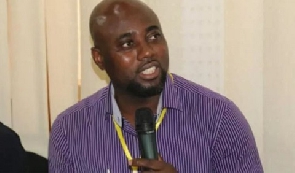Opinions of Monday, 27 December 2010
Columnist: Jeffrey, Peter
Spio-Garbrah commends President Mills.
Tapping into Diaspora skills – Ambassador Dr Ekow Spio-Garbrah commends President Mills.
The image of Ghana has change dramatically since the heady days of the 1980s, when the country lost over 90% of her skilled labor. Migration became a source of survival for majority of the country’s citizens through the remittance of its international migrants. OECD countries became major destinations’ of emigrants from Ghana.
For Ghana, the remittances from her nationals abroad became an importance source for the economic development of various communities, often spearhead by hometown and professional associations. The remittances contribute not only to cover the deficit of the balance of payment but also to the entry of foreign currency in the country.
The 1980s also witnessed the mass expulsion of Ghanaian nationals from neighboring countries as well as becoming the source of destination of refugee flows from Liberia, Sierra Leone, Burkina Faso and Togo and in 2002 from Ivory Coast through the western corridor.
Today there is another quiet revolution going on in Ghana that is helping to transform the country from an economic backwater to an emerging vibrant market led economy.
Today the dream of returning to the homeland is not only a reality and shared by indigenous Ghanaians, but among many African Americans who, symbolically and historically, see Ghana as their homeland.
Today Ghana is the new “South Korea” of sub-Saharan Africa, thanks to her burgeoning economy, oil production, more discoveries of precious minerals and vibrant emerging middle class. Statistics point to that, with many arguing that Ghana is on the verge of breaking into the “club of middle income countries”. The many skilled migrants Ghana lost in the 1980s economic crisis are returning home, many with investments and savings to match their status. Many African Americans are returning to the land of their ancestors, Ghana, seeking to profit from the meteoric rise of its economy.
Since the early 2000 returning Ghanaians account for more than half the start ups in Accra. One such émigré this writer met in New York, “Quincy (Kwesi)”, who is 48 years old and with PhD in Electronic Engineering from University of Pennsylvania(speaks with an American accent and holds American citizenship) is packing to return home to start an IT business said, “I have spent 30years of my life in United States. I came here as a student in search of freedom and opportunities. After 30years in America, owning my own real estate and married with 2 girls at college, I sat atop my Rockaway home, watching the planes and longing to fly back home”. He stated, “Most immigrants of my generation are haunted by this conflict. We came for the American dream, changing identities, choosing cultures and chasing opportunities, we leave our homeland but it doesn’t leave us”
Quincy would get to return to the homeland, though, first in the early 1990s when Ghana was going through tremendous transformation, and on numerous occasions since.
Quincy’s family was fortunate to follow relatives to New York to escape from the hunger that hit their homeland. He said, “I really lost it at that moment, sitting on the plane at Kotoka International Airport. I remember looking out the window, crying, thinking I’d never return, thinking of my new friends at Commonwealth Hall, University of Ghana I’ve to leave behind, just waves of emotion”.
Quincy and his generation, the skilled migrants Ghana lost, migrated to seek opportunities. They are neither political exile nor refugees fleeing from revolution. Unlike generations past, they can go back home and frequently do. These are the generation who are bringing much needed change to Ghana and Africa.
Since the nation began its journey from Structural Adjustment programs in late 1980s, it has made remarkable strides as a market economy and a stable democracy in a very volatile region. Now boasting one of the fastest-growing economies in sub-Saharan Africa, Ghana has been one of the only nations to experience consistent growth in the past decade.
In addition Ghana’s real GDP growth rate of more than 5% over the past 6 years is a remarkable achievement under both John Kuffuor’s government and the current John Mills NDC administration.
The rapid economic growth and stable democracy has made Ghana a prime target for foreign investors and a location of growing potential business owners, especially Ghanaian diaspora and African Americans who are looking for the opportunity to reclaim their inheritance.
According to Ghana Investment Promotion Council, over the past 10 years there’s been a noticeable increase in Ghanaian diaspora and others looking to go back for business purposes.
Like Quincy (Kwesi), Arthur (Atta Payin) works as a realtor in upstate New York with considerable holdings in the homeland. He first returned to Sekondi, Ghana in the early 2000s to visit his family after graduating from Stanford, but now he makes regular trips to oversee his investment in real estate in Sekondi-Takoradi.
During the Structural Adjustment years, often referred to “Ghana’s economic miracle” by the Britton Woods Institutions, people would go back, willing to take on chances on risky, at times murky ventures or more for sentimental reasons.
Arthur said, “Dual citizenship has increased the ease of process of going back and forth between Ghana and America”.
In an interview with Ambassador Dr Ekow Spio-Garbrah, former Ambassador and Minister in Rawlings NDC government, said, “In spite of risks that come with investing in a young economy, the idea of returning to the homeland and giving back is enticing to many professionals”.
Dr Garbrah said when one stop and think about all types of services that have neglected to set up in Ghana due to the economic climate under the last administration, now there are markets literally waiting to be tapped in back home.
Dr Garbrah, who is being urged by progressives to run for 2016 presidential elections said, “It’s been a gradual process, but it’s been a remarkable transition over the past 20 years.
Ambassador Garbrah said in the diaspora reside some of Ghana’s most educated, entrepreneurial and wealthy citizens, thus by encouraging to return, or at least invest in home would have a huge impact on the country’s development and job creation and speed up the process of reducing poverty across the country.
Quincy (Kwesi) who left home at 18years old said, “Now when I get off the plane in Ghana, I look out and see hope for my homeland”. Although he speaks and act very much American, he said, “I’m very, very passionate about Ghana and Ghanaians in general. I think it is my duty to give back to the homeland. Although I am an American, I still consider myself Ghanaian. Both identities matter to me and I don’t want to pick one or the other”.
Ghana’s diaspora, estimated to number over 3 million, is very real, with recognizable and dynamic communities in Atlanta, Chicago, London, Düsseldorf, New York, Paris, Rome, Sydney and Toronto, to name the most prominent. Ghanaians and children of Ghanaian immigrants have achieved widespread recognition as hard working, upstanding citizens, with a track record of achievement in almost every area of endeavour. The challenge for the Ghanaian government is how to bring them back home. Many of the children of the immigrants are beginning to take advantage of the opportunities that the homeland offers as is the case at the last world cup in South Africa.
Dr Garbrah said, “We need these overseas skills and we need to find ways to make their repartition attractive, even if it means paying the market rate for them. At the same time, we need to provide incentives to those here, who have for too long been neglected as the working poor”.
Ambassador Garbrah said it is not the first time that such an idea has surfaced in public discourse. He said almost every government has at one time or another spoken of the importance of tapping into the diaspora and not only interested in the money they remit to the homeland. He said it is a positive way by the Mills government of looking at the problem.
He said the best way to use diaspora skills more strategically would be in capacity building, training and mentorship, with a view to rebuilding our public institutions and putting in place sustainable systems, with strong emphasis on human resource development. He also called for the establishment of University of Agriculture in Volta Region as a matter of urgency. He explains that although Ghana is at the take off stage, the country must be self sufficient in mechanized food production first and foremost.
He said the diaspora skills transfer would address critical shortages in areas of health, education and rural development.
Dr Garbrah commended Mills government for looking at ways other countries, including Israel, India and the Philippines have successfully mobilized their nationals abroad to contribute to their home country’s development process.












